ALBA condemns as ‘politically motivated’ exclusion from Summit of the Americas in LA
The group of ALBA countries has condemned the US' decision to exclude certain Latin American nations from the 9th Summit of the Americas, calling the move “politically motivated.”
The United States had said it only wanted leaders of governments it calls democratic to attend the event scheduled to be held in Los Angeles from June 6 to 10.
In a declaration approved at the end of their meeting in the Cuban capital of Havana, the ALBA countries "repudiated the exclusions and discriminatory treatment at the so-called Summit of the Americas in Los Angeles."
The 10 countries, known as the ALBA bloc, also said, “They reject the arbitrary, ideological and politically motivated exclusion of several of our countries. This unilateral decision constitutes a serious historical setback in hemispheric relations.”
The bloc is comprised of Antigua and Barbuda, Bolivia, Cuba, Dominica, Grenada, Nicaragua, Saint Kitts and Nevis, Saint Lucia, Saint Vincent and the Grenadines and Venezuela.
The US administration had earlier said it would not invite the governments of Venezuela or Nicaragua to the summit, claiming that it only considered the "commitment to democracy" to be "a key factor in who is invited and who is not."
Amid a threat to boycott the event by some representatives of the region, Washington is urging the presence of Mexican President Andres Manuel Lopez Obrador, who together with leaders of Argentina, Bolivia, Chile, Guatemala, and Honduras, have expressed their intention to leave the summit if all countries do not participate.
In a speech before the meeting on Friday, Venezuela President Nicolas Maduro described the summit as "an erratic call" and applauded the "general protest" of a group of nations headed by the Mexican president who "has stood up to raise the voice of the truth of an entire continent."
“We thank Mexican President Andres Manuel Lopez Obrador for leading this day in defense of the truth, of unity, of brotherhood, of democratic debate and against exclusion,” Maduro said.
“We have seen solid, courageous voices, such as that of the president of Honduras, Xiomara Castro, that of our beloved president of Bolivia present here, Lucho Arce, and of governments from all over the continent that, with different tones and emphasis, have been forceful and clear in condemning the exclusion of the people of Venezuela, Cuba and Nicaragua.”
Bolivian President Luis Arce also said, "We strongly reject the exclusion of our sister nations from the ninth Summit of the Americas, and I reiterate my decision to not attend such meeting until all governments of the countries of the Americas are invited, under conditions of full hierarchical equality and participation.”
Additionally, the coordinator of the Summit of the Americas said it was up to the White House whether it would invite Cuba but said Cuban civil society activists had been asked to attend, declining to make public which Cuban civil society activists had been invited to attend the Summit of the Americas.
Cuban President Miguel Diaz-Canel said this week that he would not attend the event under "any circumstances" even if invited.
“Exclusions are no longer possible. The decision to not invite everyone is a historic setback and all countries must be invited on equal terms. It is disrespectful and harmful to the sovereignty of nations to try to decide from the privileged condition of the host. In the face of attempts at exclusion and selectivity, it is urgent to strengthen the authentic mechanisms of Latin American and Caribbean integration and coordination,” Diaz-Canel said.
The US administrations have successively scrambled over the years to expand their foothold in the Latin American countries, described in the US political playbook as Washington's backyard, by interfering in their domestic affairs and piling up economic pressure on them to succumb to its unlawful demands.
The US has maintained a harsh economic, financial, and commercial embargo against Cuba for more than 60 years.
Numerous resolutions by the UN General Assembly have said the move is in breach of international law. However, that has not prevented Washington from consistently voting against the UN resolutions demanding an end to the harsh embargo on Cuba.
VIDEO | Press TV's news headlines
Economic protests and subsequent terrorism in Iran
Court docs show Trump sought to deport student over pro-Palestine op-ed
'Any harm to Ayatollah Khamenei a declaration of war on Shias'
Discover Iran: Hormozgan’s strategic ports powering trade, commerce and connectivity
VIDEO | Store, gym set on fire by masked rioters during recent unrest in Tehran
Obama, Clinton urge Americans to ‘stand up’ as protests spread in US
Yemen’s Ansarullah warns US, Israel of Red Sea attacks if Iran hit


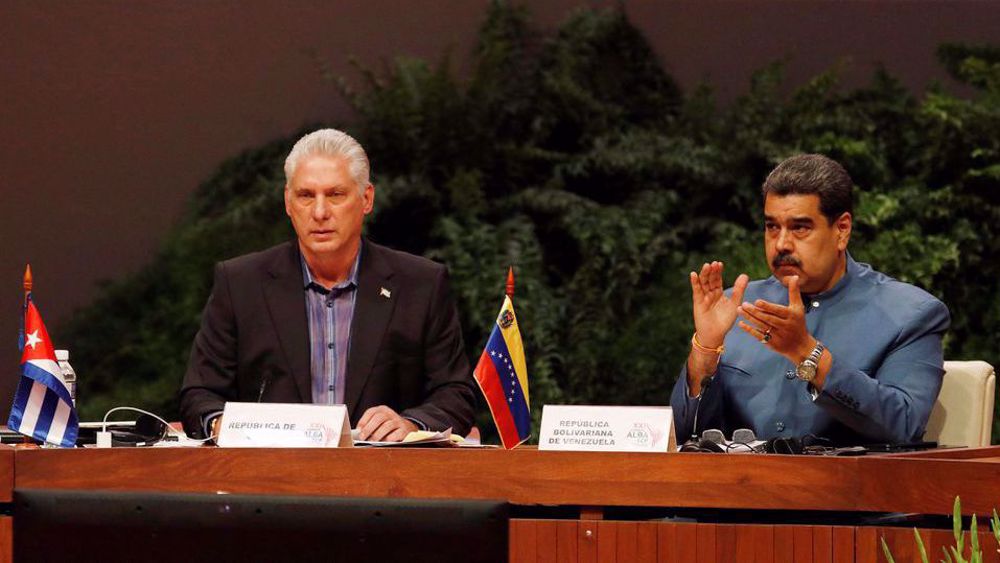
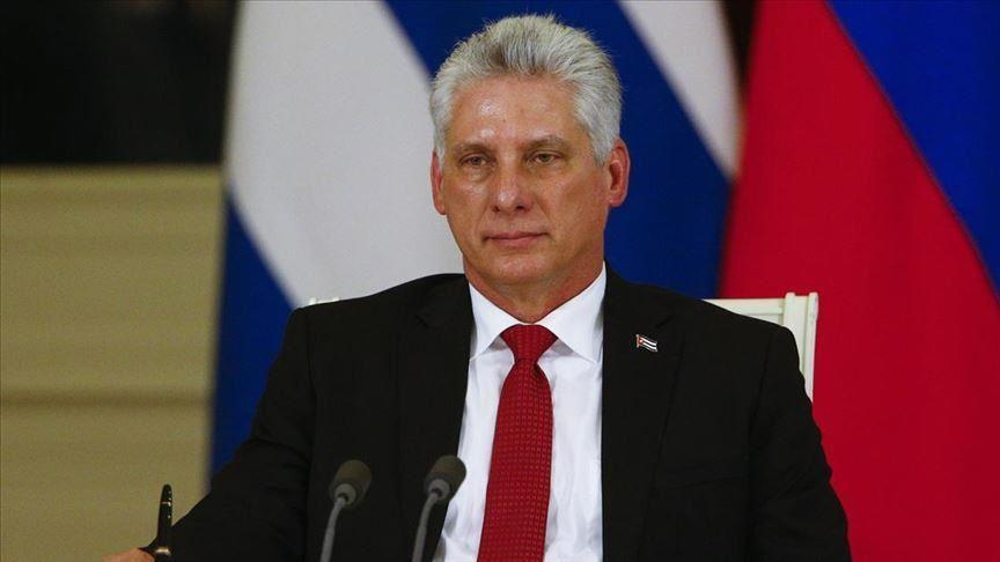
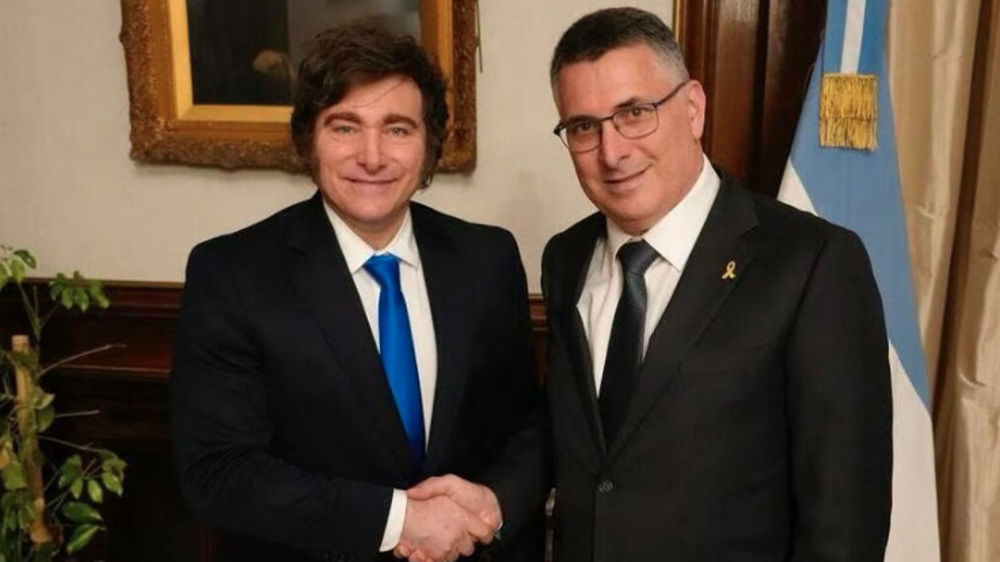
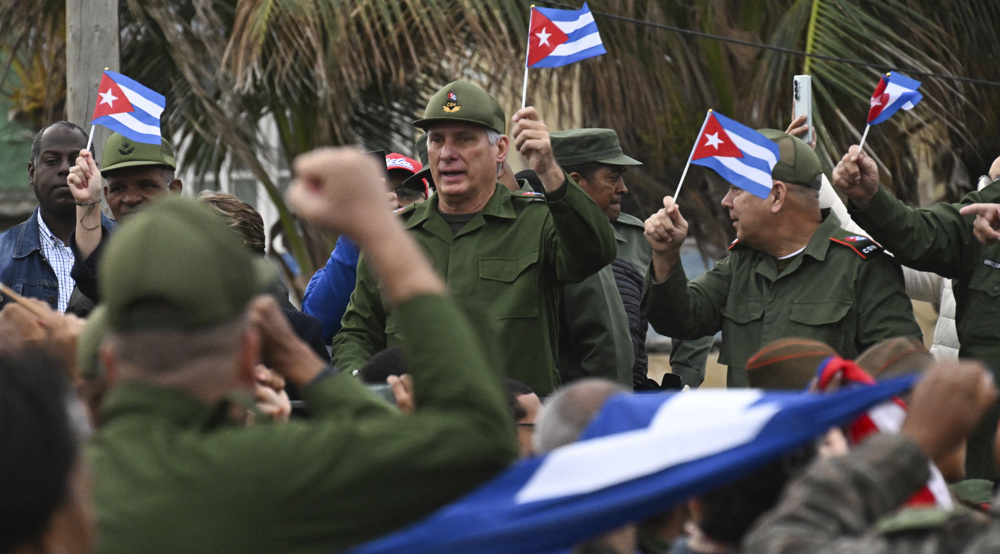
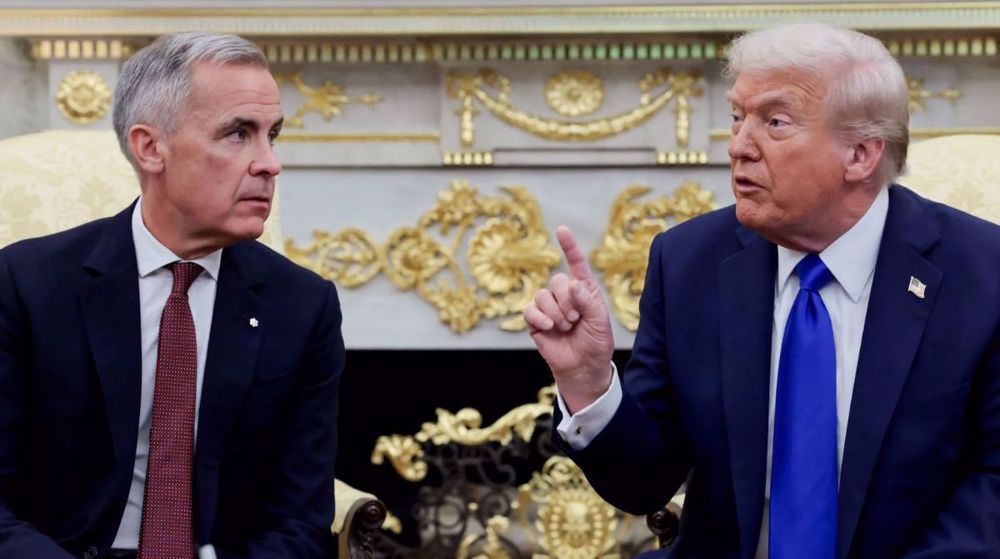




 This makes it easy to access the Press TV website
This makes it easy to access the Press TV website